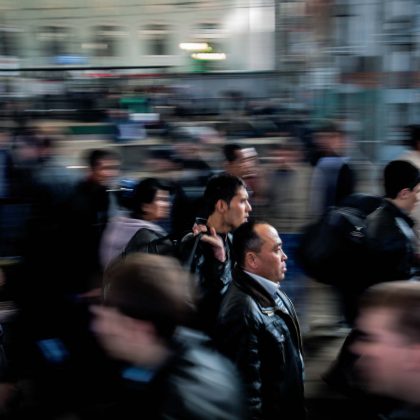European, universal or mestizo? where was international law born, and why it matters today
From China’s assertive sovereignty claims in the South China Sea, to Russia’s intervention in Crimea, to America’s withdrawal from international regimes like the Paris Accord, international law’s potential to contribute to global governance has been dramatically tested. As there are many angles to consider, it is not surprising the lack of agreement regarding the nature of international law’s current challenge. Western commentators tend to see Chinese as well as Russian policies as defying existing international law, defiance based on their lack of commitment to or understanding of an international legal order rooted in Western thought and practice. At the same time, Western commentators tend to see American policies not so much as a challenge, but as a retreat from the internationalist project based on political contingency, rather than on deeper ideological or cultural reasons.
Certainly Chinese and Russian, but also non-Western commentators in general, tend to see things differently. For them, the current U.S. administration does not represent a temporal hiatus, but a recurrent threat to the international order, stemming not from an electoral incident but from deeper unilateralist and isolationist sentiments. Moreover, and rather predictably, Chinese and Russian commentators do not see their countries’ foreign policies necessarily breaching international law, while around the world these policies are not seen as exceptional but as part of the privileges accrued to great-powers.
These different views suggest that international law’s current crisis cannot be tackled simply by defending the international legal project from its attackers or sceptics, since there is not one, universal international law, but rather views about what international law is and about what constitutes compliance or a breach, depends not only on political preferences, but on where the commentator –the international lawyer, diplomat, politician or citizen– is located. That international law is not one, that is, a global and homogeneous legal order, but an order that has been understood and put into radically different uses by actors in the core and peripheries of the world is one of the central themes of Mestizo International Law: A Global Intellectual History 1842–1933.
Mestizo International Law offers a history where the different meanings and uses of international law along centre and periphery are critical to the development of international law. The story begins in 1842 with the conclusion of the Treaty of Nanjing after the Opium War between the United Kingdom and the Qing Dynasty. In the 19th century, international law as rules between sovereigns under formal equality was limited to the “family of civilized nations.” The Treaty of Nanjing subjecting China to unequal terms was thus an example of the operation of the international law regime justifying and regulating Western imperial policies across the globe.
Mestizo International Law shows how, between late 19th and early 20th century, this international regime of inequality based on a standard of –Western– civilization was first weakened and ultimately replaced by a regime of relative legal equality based on a formal concept of statehood. This transformation from civilization to statehood was not the outcome of renowned Western international lawyers’ contributions around which most Eurocentric histories circle. Mestizo International Law shows the extent to which this transformation was produced by a myriad of lesser known peripheral international lawyers, from Latin America to Africa, from the Ottoman and Russian Empires to Japan or China.
That international law was not only born in Westphalia, but that in its current form developed out of legal thought and practice of peripheral states and international lawyers suggests that our international legal order has hybrid origins. The demise of the standard of civilization and the rise of a standard of statehood, the principle of non-intervention and ultimately self-determination have all been pushed from the peripheries. Rather than being purely European, international law is mestizo.
Remembering international law’s mestizo history is important to think deeper about the current crisis. Non-Western policies, such as current Chinese or Russian policies, are mostly thought to be policies that challenge Western international law, rather than uses of international law based on peripheral traditions of legal thinking. Similarly, it continuous to be easier to think about American or Western practices as based on international legal approaches that strengthen or undermine, but never mark a departure from an international law thought to be itself Western. These attitudes attest to the lingering force that Eurocentrism exerts on contemporary international lawyers. Foregrounding the international problems vital to peripheral states and the answers devised by their international lawyers to oppose their Western counterparts’ international legal ideas and doctrines, Mestizo International Law takes the centre-periphery dynamic as the central historical dynamic explaining the emergence of our present international legal order. Retrieving these histories today may help to write a less Eurocentric international law for the future.
Read Lorca’s full work, Mestizo International Law: A Global Intellectual History 1842–1933.






Congratulations Arnulf!